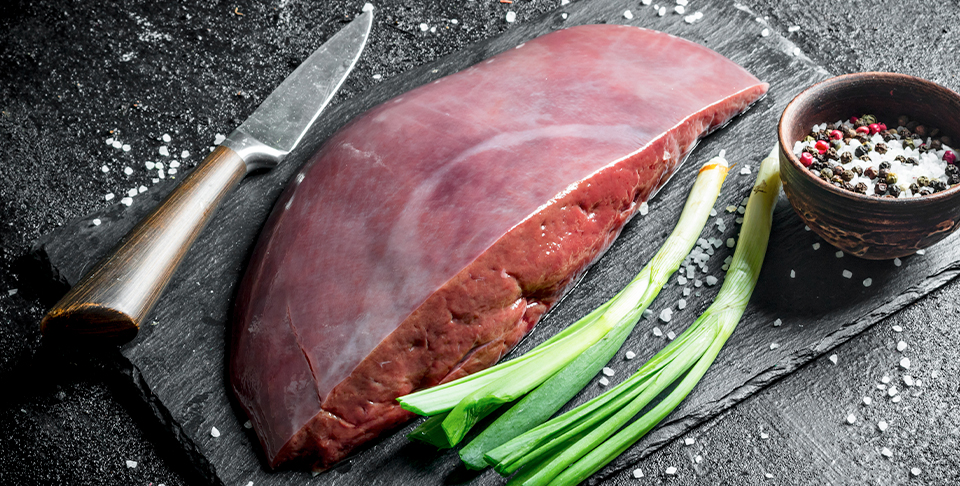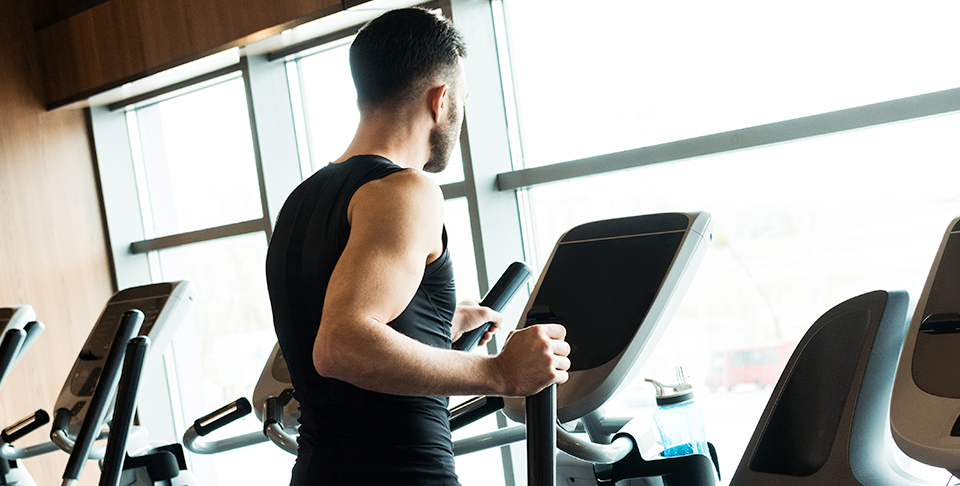Free Shipping - 48hrs Only | Use Code: FREESHIP
Ends 26/04 11:59PM AEST Min spend $79
Quick Summary
- Ubiquinol is the fully reduced form of co-enzyme Q10, vital in the energy release process in mitochondria and present in most cells.
- The body naturally produces ubiquinol, and it's found in meats, particularly in cardiac tissue, liver, seeds, nuts, and legumes.
- Ubiquinol supplementation can reduce symptoms of depression and the frequency of migraines or episodic headaches.
- It slows heart disease progression, enhances post-heart attack recovery, lowers blood pressure, and increases blood flow, particularly in obese individuals.
- Ubiquinol protects lipoproteins from oxidation, reduces endothelial damage, and suppresses inflammation, benefiting cholesterol levels.
- It slows the effects of Huntington’s and Parkinson’s diseases and shows promise in reducing symptoms of fibromyalgia and chronic fatigue syndrome.
- Ubiquinol enhances aerobic performance, increases muscle oxidation capacity, and reduces muscle fatigue, beneficial for prolonged workouts and improved power output.
- It may assist in exercise-induced fat oxidation and enhance the 'muscle pump' during exercise due to its role in nitric oxide preservation.
- Ubiquinol is safe with no known negative effects in humans at doses up to 2000 mg, but the optimal supplement dose is around 250-500 mg, taken with a lipid for better absorption.
- Available as a standalone capsule or in antioxidant and amino acid supplements, ubiquinol can be effectively stacked with creatine, L-carnitine, or alpha-lipoic acid for enhanced benefits.
What is Ubiquinol?
Ubiquinol is a form of co-enzyme Q10. This enzyme is present in most cells and forms a part of the energy release process that occurs in mitochondria. This involves the transport of electrons in a chain-like mechanism, to eventually produce the molecule ATP. Over 95% of the body’s energy is produced this way. Co-enzyme Q10 can exist in both a fully reduced and fully oxidised form – or in other words, completely saturated with electrons or completely void of electrons. Because of this, it can act as an electron carrier in the energy release process. The different forms come with different names, and ubiquinol is the fully reduced form, or the form fully saturated with electrons.
Where Does Ubiquinol Come From?
Ubiquinol does not need to be consumed; it is produced by the body in almost every cell. However there are food sources of the molecule, and most meat products will contain some percentage of ubiquitol. It is found in its highest levels in cardiac tissue, then the liver, and then all other meats. This is due to the energy requirements of different parts of the body; those organs with the highest energy requirements will have the highest levels. Plant products also have a minimal level of ubiquitol, in particular seeds, nuts and legumes.
Ubiquinol Health Benefits
Being so ubiquitous in the body (hence the name), ubiquinol has many health benefits when supplemented.
Increased levels in the brain have been associated with a reduction in the symptoms of depression, in both bipolar and chronic stress examples. It also appears to reduce the occurrence of episodic headaches or migraines, although the mechanism behind this effect is unknown.
Cardiovascular health is greatly influenced by ubiquinol. The progression of heart disease can be slowed through supplementation, and the recovery rate after a heart attack can be improved. Due to its antioxidant properties, blood pressure may also be lowered by ubiquinol. It seems to preserve the activity of nitric oxide, which is involved in the expansion of blood vessels. A study on obese individuals saw a definitive increase in blood flow after one month’s supplementation.
It is due to these antioxidant properties that ubiquinol can have a positive effect on blood cholesterol too. It protects lipoproteins from oxidation and hence reduces the endothelial damage that occurs to blood vessels from their oxidised form. It has also been noted to reduce this damage directly by suppressing the inflammatory effect of the cells, in part through nitric oxide pathways.
Ubiquinol can slow the effects of several diseases, in particular the neural associated Huntington’s and Parkinson’s diseases, by preserving nerve function for longer. This is most likely due to its antioxidant effects. Fibromyalgia also seems to be associated with altered ubiquinol levels; in preliminary studies, supplementation could reduce symptoms fairly effectively. It also shows some prospects for chronic fatigue syndrome, although this may be due to its association with depression.
Ubiquinol Benefits for Bodybuilding
Due to its role in energy production, ubiquinol can have significant effects on exercise performance and muscle tissue. Higher levels of ubiquinol in the skeletal muscles can increase their capacity for oxidation and hence can improve aerobic performance. In a simulated marathon one study found that participants with a naturally higher level of the enzyme could perform for longer.
The reasons behind this are most likely due to an increase in PGC1ά, a factor that is known to increase during exercise. It is produced by the mitochondria and incubation of cells with ubiquinol increased these production levels. Muscle fibres with a higher oxidative capacity tend to have a higher level of PGC1ά and have reduced muscle fatigue rates. One study found that 8-day supplementation could keep performance at a high level for longer during a cycling test. Muscle fatigue is also reduced via alternative mechanisms. It is thought that ubiquinol stabilises the membrane of muscle cells, reducing damage and allowing longer performance. Overall this means that higher levels of ubiquinol could lead to longer workout sessions.
In some studies, power output in those supplemented with ubiquinol increased, generally assessed with leg extensions. Although this occurred generally with those deficient in ubiquitol such as those on certain drug therapies, it does hold promise for the fitness industry with further research. Ubiquinol may also increase the oxidation of fat that is induced by exercise and hence could assist with fat loss in exercising individuals.
Its role in nitric oxide preservation may also help to improve and sustain the pump, the feeling of muscular engorgement during exercise.
Side Effects, Safety and Negatives of Ubiquinol
Although very high doses of ubiquinol in some animals appear to accelerate aging but do not increase mortality, in humans no negative effects have been observed or hypothesised. Doses of up to 2000 mg can be taken with no ill effect, higher than this may be associated with mild digestive distress.
Ubiquinol Recommended Doses and Ingredient Timing
Supplements of 500 mg have been shown to have a maximal result, higher than this will not substantially increase the benefits. Generally, 250 mg is adequate to produce observable effects. Due to its fat-soluble nature, ubiquinol needs to be taken with some form of lipid; often it is taken with a meal to stimulate bile production and hence absorption.
Ubiquinol Supplements
Ubiquinol is generally taken as a stand-alone supplement, bought in capsule form, and is one of the more expensive supplements available. It is also included in some antioxidant supplements and amino acid supplements to assist with energy production.
Stacking Ubiquinol
Ubiquinol is found to positively interact with many bodybuilding supplements. A combination of ubiquinol with creatine, L-carnitine or alpha-lipoic acid will increase the benefits much higher than either taken alone, due to the energy pathways being more effectively utilised, as well as minimising rate reduction due to a limiting nutrient.
del Hoyo P,et al.Oxidative stress in skin fibroblasts cultures from patients with Parkinson's disease.BMC Neurol. (2010)
del Hoyo Pet al.Oxidative stress in skin fibroblasts cultures of patients with Huntington's disease.Neurochem Res. (2006)
Forester BPet al.Coenzyme Q10 effects on creatine kinase activity and mood in geriatric bipolar depression.J Geriatr Psychiatry Neurol. (2012)
Gao L,et al.Effects of coenzyme Q10 on vascular endothelial function in humans: a meta-analysis of randomized controlled trials.Atherosclerosis. (2012)
Lin J,et al.Transcriptional co-activator PGC-1 alpha drives the formation of slow-twitch muscle fibres.Nature. (2002)
Gökbel H,et al.The effects of coenzyme Q10 supplementation on performance during repeated bouts of supramaximal exercise in sedentary men.J Strength Cond Res. (2010)
Gül I,et al.Oxidative stress and antioxidant defense in plasma after repeated bouts of supramaximal exercise: the effect of coenzyme Q10.J Sports Med Phys Fitness. (2011)
Kon M,et al.ffect of Coenzyme Q10 supplementation on exercise-induced muscular injury of rats.Exerc Immunol Rev. (2007)
Kwong LK,et al.Effects of coenzyme Q(10) administration on its tissue concentrations, mitochondrial oxidant generation, and oxidative stress in the rat.Free Radic Biol Med. (2002)
Aboul-Fotouh SCoenzyme Q10 displays antidepressant-like activity with reduction of hippocampal oxidative/nitrosative DNA damage in chronically stressed rats.Pharmacol Biochem Behav. (2013)
Liang H, Ward WF.PGC-1alpha: a key regulator of energy metabolism.Adv Physiol Educ. (2006)
Mizuno K,et al.Antifatigue effects of coenzyme Q10 during physical fatigue.Nutrition. (2008)
Muraki A,et al.Coenzyme Q10 reverses mitochondrial dysfunction in atorvastatin-treated mice and increases exercise endurance.J Appl Physiol. (2012)
Rimarco V. et al. Nutraceuticals for blood pressure control in patients with high-normal or grade 1 hypertension, Int. J Vitam Nutr Res (1994)
Weber C, et al. Antioxidative effect of dietary coenzyme Q10 in human blood plasma. Int J Vitam Nutr Res. (1994)
Matthews RT,et al.Coenzyme Q10 administration increases brain mitochondrial concentrations and exerts neuroprotective effects.Proc Natl Acad Sci U S A. (1998)
Rozen TD,et al.Open label trial of coenzyme Q10 as a migraine preventive.Cephalalgia. (2002)
Sarter B.Coenzyme Q10 and cardiovascular disease: a review.J Cardiovasc Nurs. (2002)
Singh RB,et al.Randomized, double-blind placebo-controlled trial of coenzyme Q10 in patients with acute myocardial infarction.Cardiovasc Drugs Ther. (1998)
Lee YJ,et al.Effects of coenzyme Q10 on arterial stiffness, metabolic parameters, and fatigue in obese subjects: a double-blind randomized controlled study.J Med Food. (2011)
Zhou S,et al.Muscle and plasma coenzyme Q10 concentration, aerobic power and exercise economy of healthy men in response to four weeks of supplementation.J Sports Med Phys Fitness. (2005)



